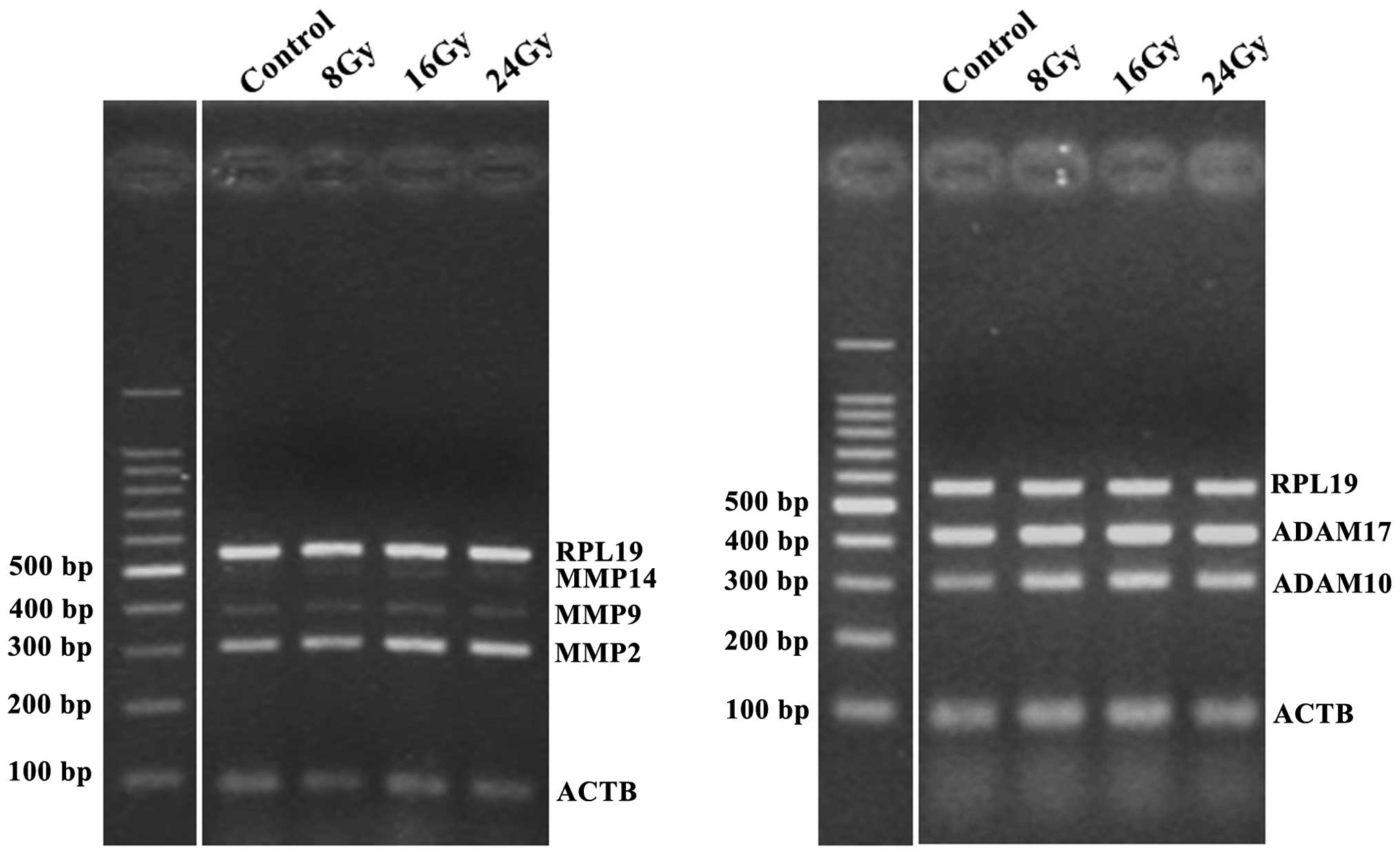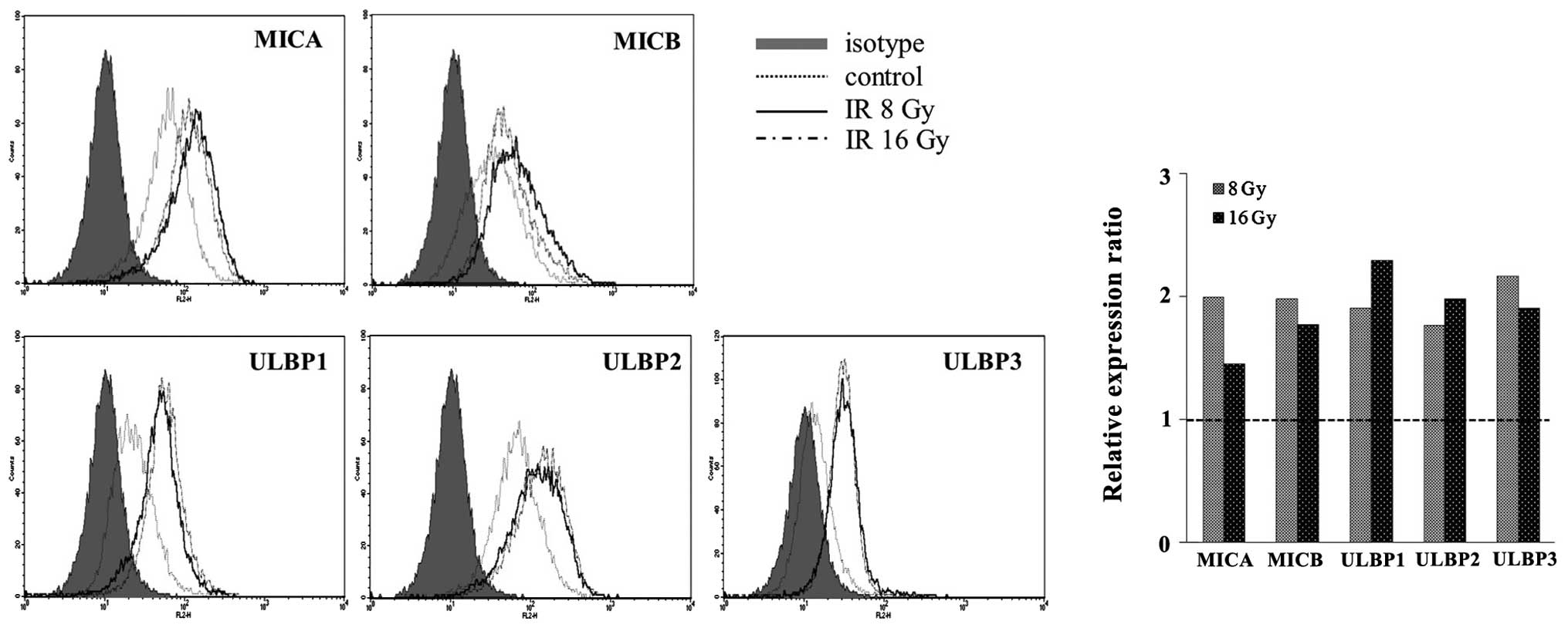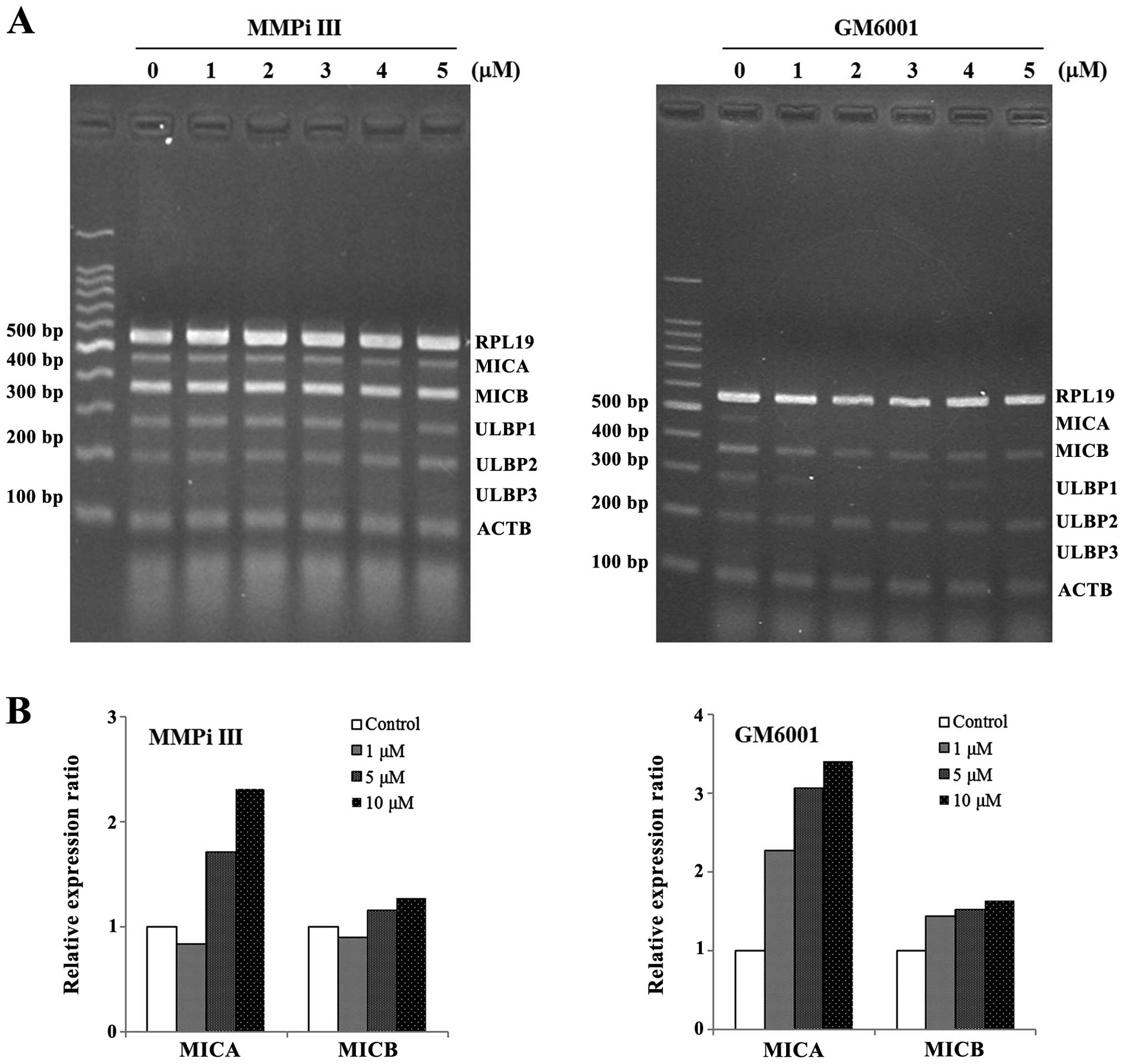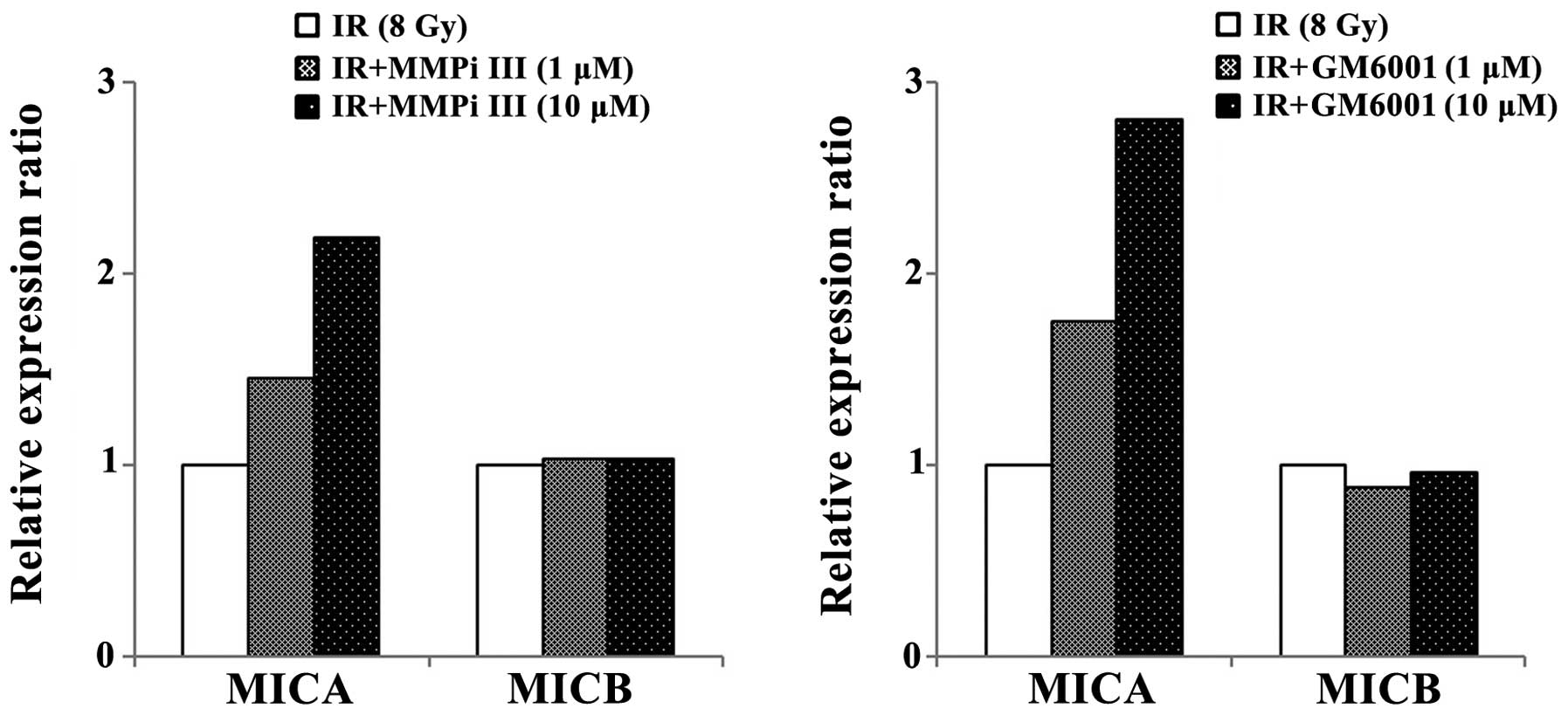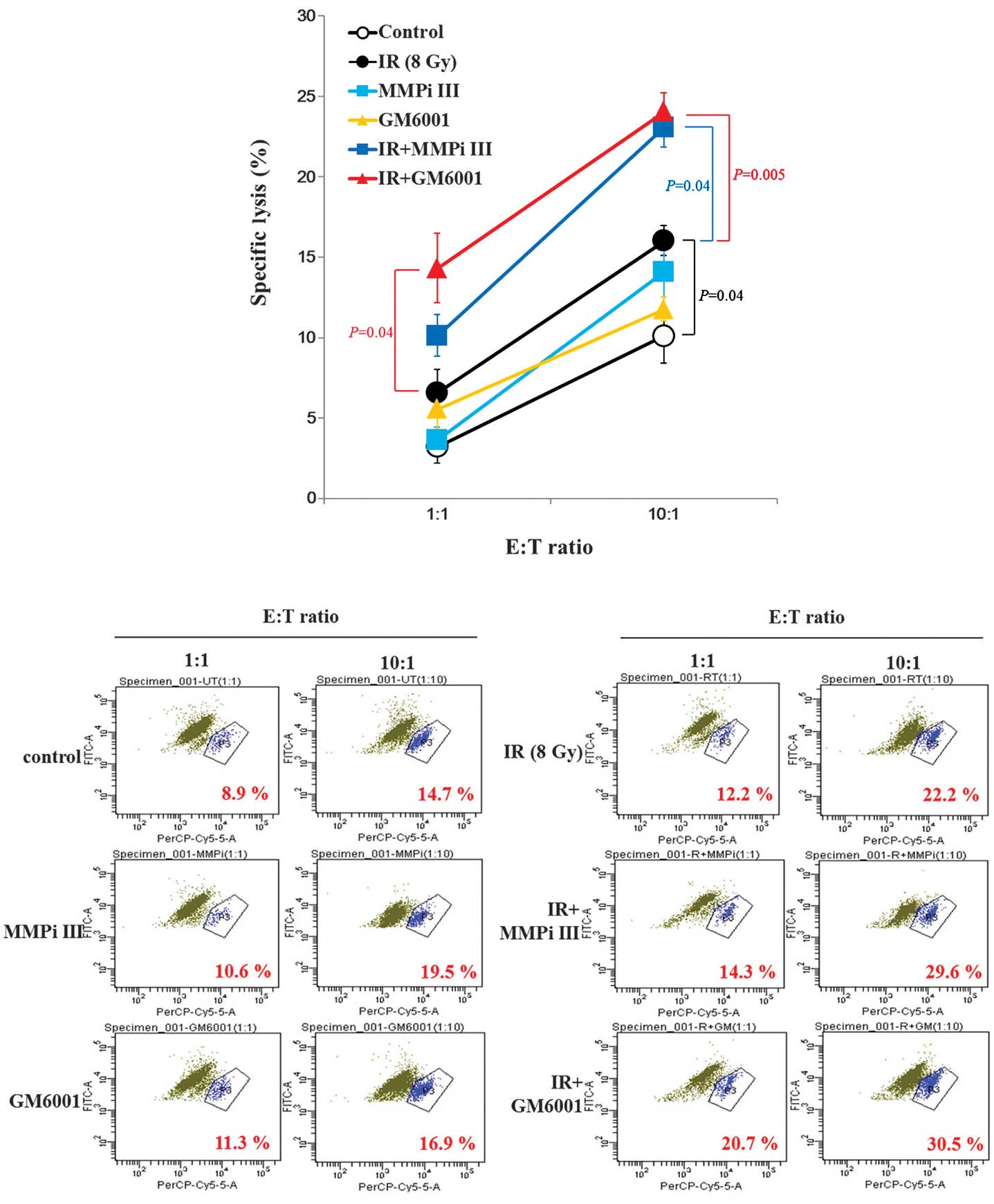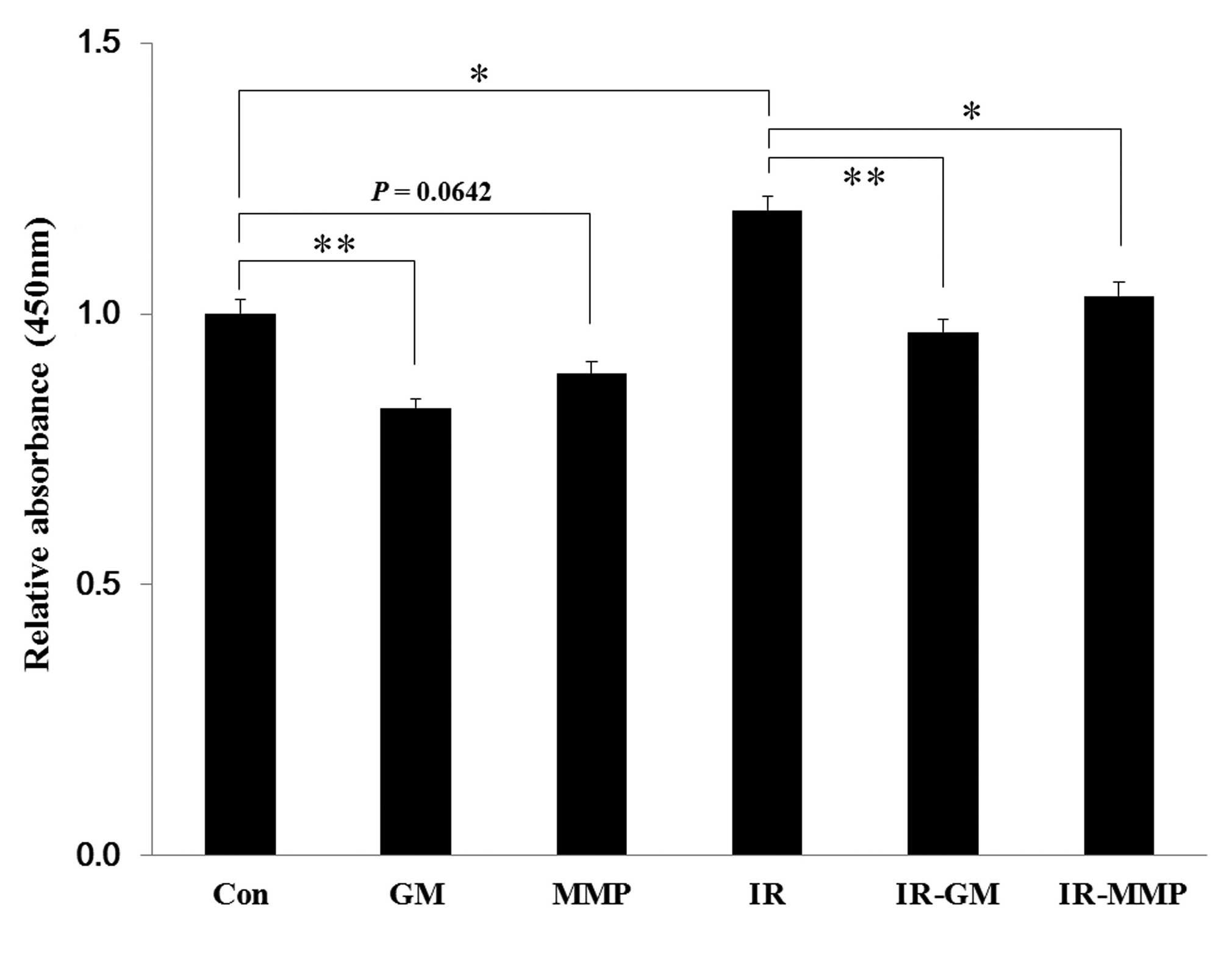|
1
|
Friedman EJ: Immune modulation by ionizing
radiation and its implications for cancer immunotherapy. Curr Pharm
Des. 8:1765–1780. 2002. View Article : Google Scholar : PubMed/NCBI
|
|
2
|
Nakagawa K, Yoshida F, Omori N, Tsunoda T
and Nose T: The effect of radiation therapy combined with natural
killer cells against spontaneous murine fibrosarcoma. Biotherapy.
2:69–75. 1990. View Article : Google Scholar : PubMed/NCBI
|
|
3
|
Kim JY, Son YO, Park SW, et al: Increase
of NKG2D ligands and sensitivity to NK cell-mediated cytotoxicity
of tumor cells by heat shock and ionizing radiation. Exp Mol Med.
38:474–484. 2006. View Article : Google Scholar : PubMed/NCBI
|
|
4
|
von Essen CF: Radiation enhancement of
metastasis: a review. Clin Exp Metastasis. 9:77–104. 1991.
View Article : Google Scholar : PubMed/NCBI
|
|
5
|
Wang CJ, Chen HC, Huang EY and Lee SP:
Elective neck irradiation for nasopharyngeal carcinoma. Chang Gung
Med J. 23:387–395. 2000.PubMed/NCBI
|
|
6
|
Davidson B, Goldberg I, Kopolovic J, et
al: MMP-2 and TIMP-2 expression correlates with poor prognosis in
cervical carcinoma - a clinicopathologic study using
immunohistochemistry and mRNA in situ hybridization. Gynecol Oncol.
73:372–382. 1999. View Article : Google Scholar : PubMed/NCBI
|
|
7
|
Ekinci T, Ozbay PO, Yiğit S, Yavuzcan A,
Uysal S and Soylu F: The correlation between immunohistochemical
expression of MMP-2 and the prognosis of epithelial ovarian cancer.
Ginekol Pol. 85:121–130. 2014.PubMed/NCBI
|
|
8
|
Liu WW, Zeng ZY, Wu QL, Hou JH and Chen
YY: Overexpression of MMP-2 in laryngeal squamous cell carcinoma: a
potential indicator for poor prognosis. Otolaryngol Head Neck Surg.
132:395–400. 2005. View Article : Google Scholar : PubMed/NCBI
|
|
9
|
Boutet P, Agüera-González S, Atkinson S,
et al: Cutting edge: the metalloproteinase
ADAM17/TNF-alpha-converting enzyme regulates proteolytic shedding
of the MHC class I-related chain B protein. J Immunol. 182:49–53.
2009. View Article : Google Scholar
|
|
10
|
Kohga K, Takehara T, Tatsumi T, et al:
Anticancer chemotherapy inhibits MHC class I-related chain a
ectodomain shedding by downregulating ADAM10 expression in
hepatocellular carcinoma. Cancer Res. 69:8050–8057. 2009.
View Article : Google Scholar : PubMed/NCBI
|
|
11
|
Lee BK, Kim MJ, Jang HS, et al: A high
concentration of MMP-2/gelatinase A and MMP-9/gelatinase B reduce
NK cell-mediated cytotoxicity against an oral squamous cell
carcinoma cell line. In Vivo. 22:593–597. 2008.PubMed/NCBI
|
|
12
|
Liu G, Atteridge CL, Wang X, Lundgren AD
and Wu JD: The membrane type matrix metalloproteinase MMP14
mediates constitutive shedding of MHC class I chain-related
molecule A independent of A disintegrin and metalloproteinases. J
Immunol. 184:3346–3350. 2010. View Article : Google Scholar : PubMed/NCBI
|
|
13
|
Sun D, Wang X, Zhang H, Deng L and Zhang
Y: MMP9 mediates MICA shedding in human osteosarcomas. Cell Biol
Int. 35:569–574. 2011. View Article : Google Scholar
|
|
14
|
Park SW, Bae JH, Kim SD, et al: Comparison
of level of NKG2D ligands between normal and tumor tissue using
multiplex RT-PCR. Cancer Invest. 25:299–307. 2007. View Article : Google Scholar : PubMed/NCBI
|
|
15
|
Eissmann P, Evans JH, Mehrabi M, Rose EL,
Nedvetzki S and Davis DM: Multiple mechanisms downstream of TLR-4
stimulation allow expression of NKG2D ligands to facilitate
macrophage/NK cell crosstalk. J Immunol. 184:6901–6909. 2010.
View Article : Google Scholar : PubMed/NCBI
|
|
16
|
Gasser S, Orsulic S, Brown EJ and Raulet
DH: The DNA damage pathway regulates innate immune system ligands
of the NKG2D receptor. Nature. 436:1186–1190. 2005. View Article : Google Scholar : PubMed/NCBI
|
|
17
|
Lanier LL: NK cell recognition. Annu Rev
Immunol. 23:225–274. 2005. View Article : Google Scholar : PubMed/NCBI
|
|
18
|
Ljunggren HG and Malmberg KJ: Prospects
for the use of NK cells in immunotherapy of human cancer. Nat Rev
Immunol. 7:329–339. 2007. View
Article : Google Scholar : PubMed/NCBI
|
|
19
|
Bae JH, Kim JY, Kim MJ, et al: Quercetin
enhances susceptibility to NK cell-mediated lysis of tumor cells
through induction of NKG2D ligands and suppression of HSP70. J
Immunother. 33:391–401. 2010. View Article : Google Scholar : PubMed/NCBI
|
|
20
|
Son CH, Keum JH, Yang K, et al:
Synergistic enhancement of NK cell-mediated cytotoxicity by
combination of histone deacetylase inhibitor and ionizing
radiation. Radiat Oncol. 9:492014. View Article : Google Scholar : PubMed/NCBI
|
|
21
|
Kim JY, Bae JH, Lee SH, et al: Induction
of NKG2D ligands and subsequent enhancement of NK cell-mediated
lysis of cancer cells by arsenic trioxide. J Immunother.
31:475–486. 2008. View Article : Google Scholar : PubMed/NCBI
|
|
22
|
Chitadze G, Bhat J, Lettau M, Janssen O
and Kabelitz D: Generation of soluble NKG2D ligands: proteolytic
cleavage, exosome secretion and functional implications. Scand J
Immunol. 78:120–129. 2013. View Article : Google Scholar : PubMed/NCBI
|
|
23
|
Groh V, Wu J, Yee C and Spies T:
Tumour-derived soluble MIC ligands impair expression of NKG2D and
T-cell activation. Nature. 419:734–738. 2002. View Article : Google Scholar : PubMed/NCBI
|















